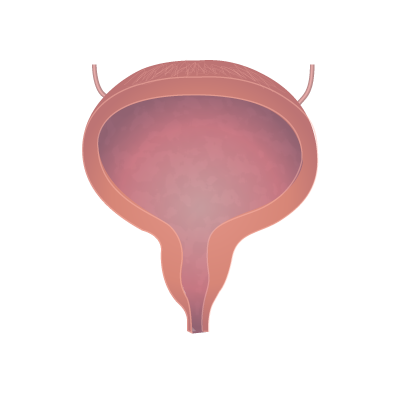Bladder cancer caused an estimated 17,200 deaths in the United States in 2021. It is particularly relevant among men. Cannabis holds many promising compounds when it comes to the treatment of cancer. Knowing this, scientists have started researching cannabinoids like cannabichromene (CBC) to determine potential effectiveness in the fight against bladder cancer. [1]
A past study [2] noted that “activation of cannabinoid receptor type 2 (CB2) was shown to affect bladder cancer cell viability.” [1] While both cannabinoid receptor type 1 (CB1) and CB2 have been identified in bladder cancer specimens, CB2 receptors seem to be particularly expressed in tumor tissue. In the aforementioned study [2], development of bladder cancer was stunted by CB2 agonists.
When speaking about CB2 agonists, cannabinoids are bound to come into the conversation. But while cannabidiol (CBD) and tetrahydrocannabinol (THC) are usually the central topics, recently CBC took the spotlight.
The scientists pinned down the active plant ingredients (API) from the extract of a CBD-rich cultivar to see their cytotoxic activity on bladder cancer in vitro. They fractionated the crude extract and identified fraction 7 (F7) as the most active ratio with CBC:THC at 6:1. The high-CBD fraction was also significantly effective.
A synergistic relationship between CBC and THC was established, which is likely a manifestation of the entourage effect. The combination increased the apoptotic cell death in T24 cells, which are one of the main lifelines of bladder cancer. Using CB1 and CB2 inverse agonists, researchers confirmed the importance of the CB2 receptor and noted a minor role from CB1.
Moreover, because overexpression of CB1 and CB2 receptors was linked to improvements in liver cancer in a past study [3], the scientists speculate that the up-regulation of CB1 and CB2 receptors by the CBC + THC or CBD treatments can trigger a positive feedback loop which generates anti-cancer activity.
Also, “CBC + THC or CBD treatments inhibited cell migration and affected F-actin integrity.” Actin filaments are associated with all stages of cancer formation.
The researchers note that identifying APIs from cannabis with the ability to induce apoptosis and influence cell migration in cancerous cell lines could serve as the foundation of pre-clinical trials for bladder cancer treatment.
Image Credits: Bladder; DBCLS, Wikimedia Commons, CC BY 4.0
References:
1- Anis O, et al. Cannabis-derived compounds cannabichromene and ∆9-tetrahydrocannabinol interact and exhibit cytotoxic activity against urothelial cell carcinoma correlated with inhibition of cell migration and cytoskeleton organization. 2021;26:465. Impact Factor = 4.411; Times Cited = 4 (Semantic Scholar)
2- Bettiga A, et al. Bladder cancer cell growth and motility implicate cannabinoid 2 receptor-mediated modifications of sphingolipids metabolism. Sci Rep. 2017;7:1–11. Impact Factor = 4.379; Times Cited = 17 (Semantic Scholar)
3- Xu X, et al. Overexpression of cannabinoid receptors CB1 and CB2 correlates with improved prognosis of patients with hepatocellular carcinoma. Cancer Genet. Cytogenet. 2006;171:31–38. Impact Factor = n/a; Times Cited = 142 (Semantic Scholar)








